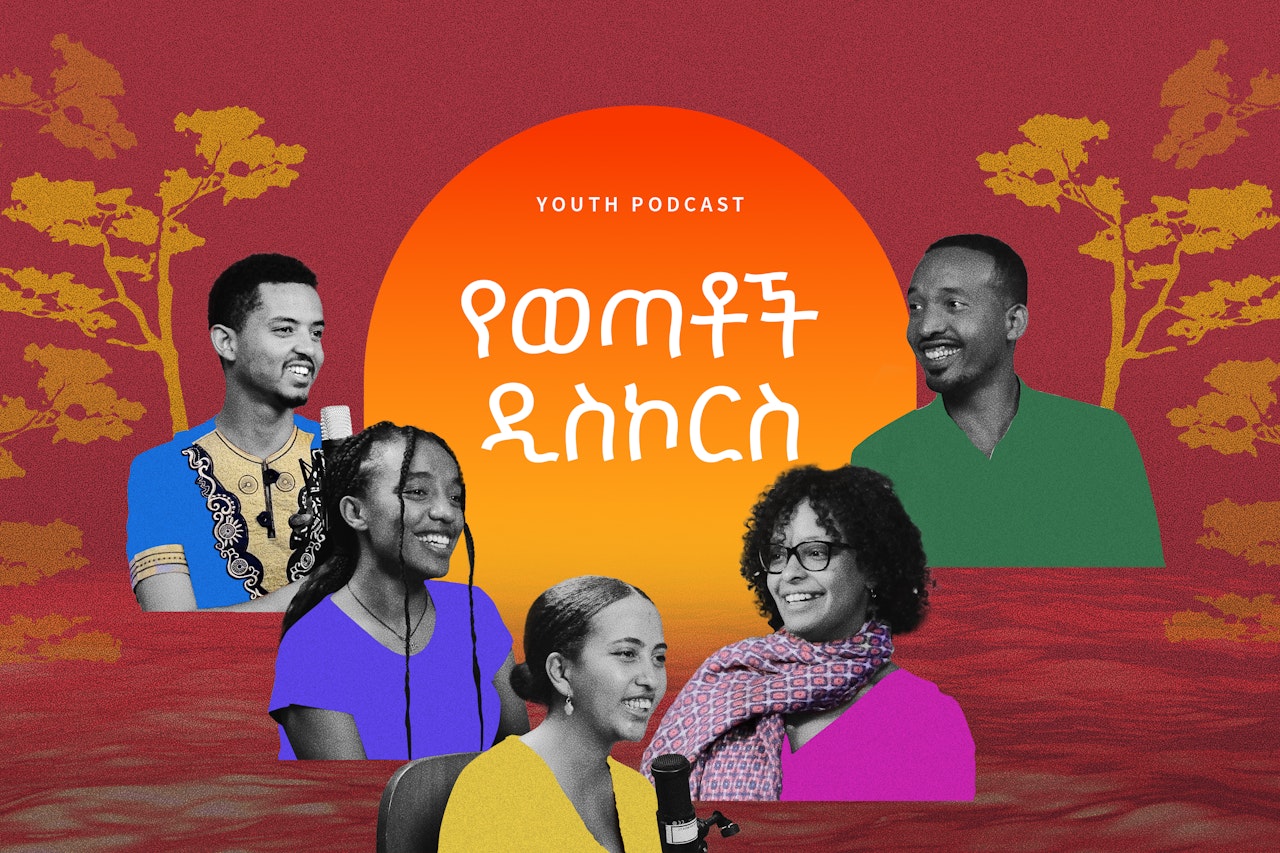ETHIOPIA
New podcast invites youth to reflect on identity and purpose
A new podcast by the Bahá’ís of Ethiopia creates a space for youth to reflect on questions of identity in a society comprising more than 80 ethnic groups.

A new podcast by the Bahá’ís of Ethiopia creates a space for youth to reflect on questions of identity in a society comprising more than 80 ethnic groups.

ADDIS ABABA — Questions of identity press upon young people worldwide, though they take on dimensions shaped by each society’s particular realities. For Ethiopia’s youth—living in a nation of more than 80 ethnic groups where diversity reflects both the beauty and complexity of the country—these questions have become a subject of deep reflection: What truly defines who we are?
This question lies at the heart of a new podcast series, Youth Discourse, launched by the Bahá’í Office of Public Affairs of Ethiopia. The series explores themes of identity and purpose through conversations inspired by the principles of the Bahá’í Faith.
“Ethiopia, with its predominantly young population and wide access to social media, presents a unique opportunity for such conversations,” explained Mihrael Assefa, a member of the Office, in a conversation with the News Service.
“In a society where conversations around ethnic identity are prominent, the podcast seeks to offer a more unifying concept—one that promotes a broader understanding of our shared identity as human beings.”
Ethiopia’s diversity has at times been a source of division. In recent years, conflicts rooted in ethnic tensions have particularly affected young people, who make up over 70 percent of the population.
“The podcast aims to offer a space where young people can examine their reality, discover their capacities, and see themselves as protagonists of social progress,” said Mrs. Assefa.
The first episode explores conceptions of human nature that transcend external characteristics and invites listeners to think about how to move beyond divisive social categorizations.
Naome Deresse, a member of a local Bahá’í community-building agency, observed: “When we speak about identity, what comes to mind is our ethnicity, nationality, religion, or gender.
“But these are really just part of our background”, she adds. “What we are beginning to understand is that we possess an inherently noble identity that transcends these limitations.”
Other interviewees echoed this thought. “Those limited identities are temporary and are subject to change,” remarked Abubeker Ali, a coordinator of Bahá’í moral and spiritual educational programs in Addis Ababa.
“What truly endures are the spiritual qualities that shape our character—qualities that are universal and shared by all people,” he said.
This recognition of humanity’s spiritual nature has profound implications for how people relate to one another, explained Carmela Tesfaye, a member of a community-building agency in the northern region of the country.
“The challenges facing the world reveal that we cannot progress in isolation—we are fundamentally interconnected,” she said.
The second episode turned to the question of life’s deeper meaning, highlighting the concept of a twofold moral purpose of the individual: the cultivation of one’s inner capacities and service toward the betterment of society—understood as two inseparable dimensions of a single aim.
“If we believe that we are created to contribute to the betterment of the world and to live in concord and harmony, then one thing becomes clear: the purpose of our action should be to advance the world, not hinder its progress,” said Bitiya Elias, a coordinator of local community-building initiatives.
For Carmela Tesfaye, service is not confined to volunteering. “When we speak of the word ‘service’, we might equate this with ‘volunteerism,’” Carmela noted. “This perspective needs to shift.”
“Whatever our career may be,” she continued, “if we are contributing to the progress of the world, and if we carry it out in a spirit of service, the work becomes an act of worship.”
Underlying the conversations is a strong current of hope. “When we direct our attention toward cultivating good qualities, those virtues begin to flourish,” reflected Bilisa Ahmad.
“This is the hope we hold,” he continued, “to focus on the small light rather than the vast darkness where light has not yet reached. The fate of building the future lies in the hands of youth.”
The Youth Discourse podcast is part of a wider effort of the Office of Public Affairs to contribute to more constructive public conversations in Ethiopia that transcend division and nurture unity in diversity.
The podcast is available on YouTube, Facebook, Instagram and Tiktok.